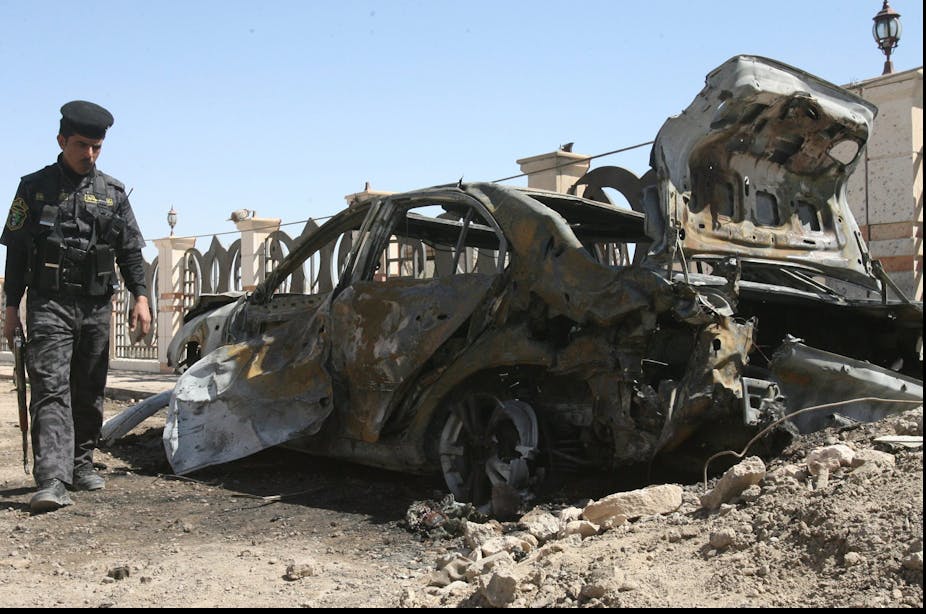Suicide attacks and car bombings across Iraq this week have killed at least 43 people and left 255 wounded.
We are sadly now very familiar with the phenomenon of the suicide bomber, but the particular horror of this type of crime never fades.
Death can evoke a wide spectrum of emotions but suicide bombings in particular make us feel something different. It is a “bad death” that largely evokes disbelief and moral condemnation.
It seems natural to us that there are good deaths and bad deaths, but are such emotional and moral reactions to suicide bombers “natural” human responses? Or do our reactions stem from the very particular relationship society has with death?
Death in society
One of the fundamental conditions for society to function is the understanding that the state has exclusive control over violence and death. In other words, for a viable society to exist, individuals must be prevented from killing others and themselves.
The society then empowers certain institutions to cause death at home and abroad, and to be death brokers – managers of the death process. The state acts violently under this system against citizens who break this fundamental law or uncivilised “others” who pose a threat. Their killing provides security and is justified during war or under judicial killing.
Death brokering is when institutional authorities render death culturally appropriate. In modern and traditional societies, medical and religious institutions are the primary death brokers.
Medical institutions control the dying process through their expertise by managing how people die and when. Religion invokes the authority of the divine covenants pertaining to “good” death. Both religion and medicine are central in negotiating meanings and the cultural appropriateness of death between the individual and the society.
Good death, bad death
“Good death” involves management of the dying process through symptom alleviation, and attention to the religious, social and cultural needs of the dying and their loved ones. In other words, a good death means disempowering the dying person in respect of all decisions over death and the dying process.
The “bad death” by the same logic is when these characteristics are absent and the individual has control over how and when to die or kill. For example, a death negotiated by medical personnel is a culturally appropriate death because the control is taken away from the dying person and given to the doctor.
But a death that occurs under circumstances in which the dying person has some or full control over the dying process, a kind of “empowered death”, is socially and culturally inappropriate death or “bad death”.
Good death is “normal” and evokes appropriate human emotional responses mostly of grief and sadness. Bad death on the other hand is “abnormal” and, therefore, stigmatised.
The murder of innocents
Suicide bombing involves not only one type of stigmatised or bad death but two – both suicide and the murder of innocents.

The above figure offers a typology of death and dying using the two variables, the presence of brokering institutions (medicine and religion) in controlling the dying process and the degree of control the individual has.
One conclusion that appears self evident from this is that stigmatised death (suicide, murder, suicide bombing) is a type of death which threatens the very survival of society and the political community.
It violates a fundamental tenet of the community’s foundation and continued existence, that individuals must surrender their natural right to violence to the state, giving the state monopoly over violence.
Strong social stigma and state’s retaliation against perpetrators, act as a kind of natural check on their occurrence and prevalence rendering them as rare form of deaths in society.
This typology offers a plausible explanation of the universal approval and disapproval of various types of death in human societies. This is why we reserve a unique kind of reaction for the death of suicide bombers.

